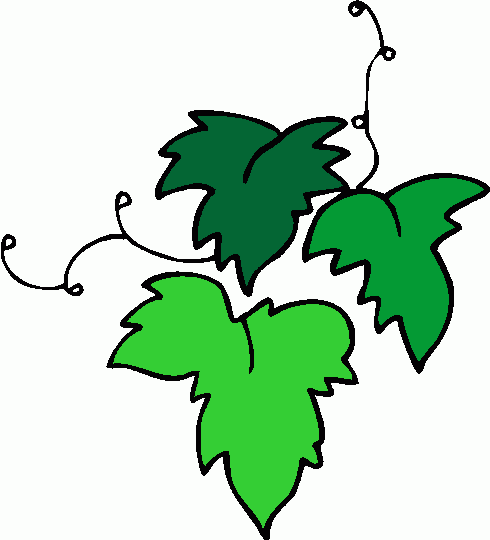Local Mum, holistic therapist and Chinese Medicine practitioner Evi Achillea blogs for us about everything to do with holistic health
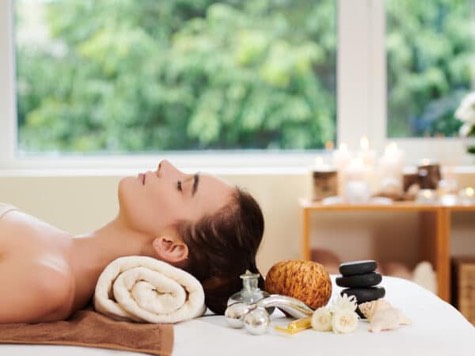
September
Reflexology for relaxation and wellbeing
Have you ever wondered how reflexology could help you? Then World Reflexology week can be a great time for you to try it and today I want to talk about Reflexology and how it can be an effective way to promote deep relaxation and wellbeing.
Reflexology is a non-invasive complementary health therapy that involves the massage of specific reflex areas on the feet, hands, and face. It is believed that these reflex areas correspond to all parts of the body and can be used to stimulate the body's natural healing processes.
One of the key benefits of reflexology is that it can be very effective in reducing stress in people's lives. When we are stressed, our bodies release chemicals that can cause a range of negative effects, including tension headaches, muscle tension, and anxiety.
Reflexology can help to balance these chemicals and reduce the levels of stress in our bodies, promoting a sense of calm and relaxation. In addition to reducing stress, reflexology can also be beneficial in promoting good health and building resilience. By stimulating the body's natural healing processes, reflexology can help to improve circulation, reduce muscle tension, stimulate the central nervous system and nerve function, increase energy, eliminate toxins, and induce a deep state of relaxation. This can lead to improved overall health and wellbeing, as well as increased resilience in the face of stress and other challenges.
Reflexology can be so beneficial to both physical and emotional wellbeing and is suitable for most people including – babies, children, teenagers, supporting conception, maternity, post-natal, menopause and many more.
So, if you're looking for a way to promote deep relaxation and wellbeing, reflexology may be a great option to consider. By reducing stress in your life and promoting good health and wellbeing, you can build resilience and optimise your overall health and wellbeing.
Local Mums Discount
£10 OFF TO ALL REFLEXOLOGY APPOINTMENTS THIS WEEK. CALL OR MESSAGE TO BOOK YOUR APPT
Thank you for reading,
Evi ❤️
Evi Achillea
Founder
Heal Within 5
Tel: 07528337068
Email: evi73@hotmail.co.uk
Evi Achillea Accupuncture
www.healwithin5.co.uk
August
History of holistic health
The term ‘holistic’ comes from the Greek word ‘holos’ meaning whole and is an ancient method of healing. Holistic therapy is defined as more of an approach rather than a treatment; it focuses on the person’s whole being – their physical, emotional, mental and spiritual wellness that needs to be addressed.
Holistic treatments look more into the lifestyle of the person and seek to identify the imbalances which may cause some negative effects to the person’s health. Holistic therapy focuses on the root cause of the disease and the goal is to eliminate the disease by encouraging the person to strive for wholeness and healthy living that clears the lymphatic drainage system and releases toxins from the body, as well as relieving mental and emotional stresses and tensions to restore natural balance. It recognises that illness and stress affects not only our physical but also our emotional, spiritual and mental well-being.
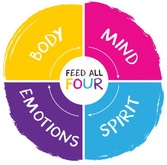
The root of all health is in the brain.
The trunk of it is in emotion.
The branches and leaves are the body.
The flower of health blooms when all parts work together.
The roots of aromatherapy can be trace back more than 3,500 years before the birth of Christ. All cultures are known to have used the aromatic properties for various reasons.
The bible records the use of essential oils for treating illness. The holy anointing oil that God directed Moses to make from ‘flowing' myrrh, sweet cinnamon, calamus, casia and olive oil would have been a powerful anti-viral and antibiotic substance, the use of which gave protection and treatment to those to whom it was administered.
The ancient Egyptians extracted essential oils by infusion and took personal hygiene seriously, as shown by the earliest recorded recipe for a body deodorant in the Papyrus Ebers of 1500 BC. The Egyptian priests used aromatic substances not only for embalming their pharaohs but also in their role as "psychiatrists" for treating manias, depression and nervousness. They recognised that burning certain aromatic substances offer protection against contagious diseases.
Jars of Frankincense and Styrax have been found in tombs dating from 3000 BC. When Tutankhamen's tomb was opened in 1992 the first smell that reached the noses of Howard Carter and his colleagues was the smell of "Kyphi”- which was made up of twenty-three aromatic herbs, spices and essential oils including Cedarwood, Frankincense and Myrrh. Aromatic herbs wood and spices were also burnt to honour their gods and oils were used to make cosmetics, medicine and perfumes.
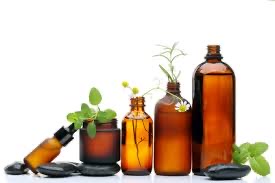
The ancient Greeks acquired their knowledge of essential oils from the Egyptians.
Herodotus (484 BCE- 420 BCE) was the first to record the use of distillation to get pure essential oil-around 425BCE. Asclepius was the earliest known Greek physician and around 1200BC combined the use of herbs and surgery. His skills and reputation led to him being deified after his death as the “god of healing."
Hippocrates (460BC-377 BC), known as the father of modern medicine (hence the Hippocratic Oath that doctors still take) said that 'the way to health is to have an aromatic bath and scented massage every day.' He wrote about the use of medicinal plants to treat illness and used aromatic fumigations to fight plagues. He was the first physician to dismiss the Egyptian belief that illness was caused by supernatural forces and he believed that the physician should try to discover natural explanations for the disease by observation and consideration of the symptoms. His treatments included massage with infusions, the internal use of herbs, baths and physical therapies. Surgery would only be used as a last resort and he regarded the entire body as an organism: "The Concept of Holism." Today Hippocrates is better known for the Hippocratic Oath that all newly qualified Doctors must swear allegiance to.
The father of pharmacology, Dioscorides ( 40-90AD), studied the habits of the plants and their healing properties and published his comprehensive work called 'De Materia Medica.' This was the first of its kind and contained over 1000 botanical medications.
Many other cultures used aromatherapy in their medicine and daily routines. The Persians made the next contribution to the knowledge of aromatics and medicine. Various Persian physicians wrote books describing the effects of various plants on the body. They have developed tools such as phials and flasks which were used in pharmacies until the early 20th century. They invented a primitive form of distillation to produce pure Essential oils and Floral Water.
Both China and India have a long history using plants and extracts in medicine. Ancient Chinese Knowledge of the effects of plants was incredibly advanced. This ancient system of healing can be traced back to 2500BC. A publication entitled 'PenTs'ao Kang-Mu' by Emperor Sen -Nung (3737-2697BC) records plants substances for medicinal use - Chinese Medicine - and Five Elements.
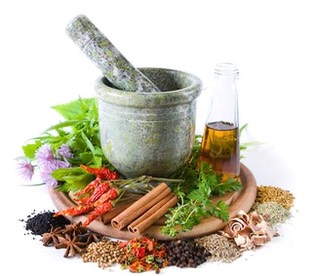
Meanwhile, in India, the Ayurvedic ( meaning life-knowledge) system of healing was developed.
The roots of this system date back 5000 years and the main principal is the balance within and without. The use of plants and spices are part of daily regime in Ayuverdic practise.
Over the next few hundred years fragrant plants and herbs became popular and the range of aromatic medicines increased. During the Great Plague, people protected themselves from infection by wearing garlands of herbs and covering floors with herbs and plants.
Benzoin, Styrax, Frankincense and various spices were used for burning in homes to try to keep the infection at bay. The survivors were those who worked in aromatics and perfumeries which is probably due to high levels of oils with antiseptic properties.
Among the many benefits holistic treatments have offered for many years, nowadays these therapies can help alleviate and enhance the following:
• Improvement of overall general health.
• Understanding the need for a well-balanced lifestyle.
• Awareness of keeping the environment safe and healthy.
• Quicker relief for pain
• Use of more natural resources and natural herbs and medicines.
• Application of more natural methods to cure illness such as proper nutrition, exercise, detoxification and other natural non-invasive treatments.
• The holistic treatments have also benefited pet care. Many pet owners are now interested in holistic ways in taking care of their pets. The practice of giving good nutritious foods to the pet, proper exercise, natural vitamin supplements and massage are recommended to keep pets healthy. Treatments like acupuncture is done instead of injections.
• The holistic treatment has benefited illnesses like ovarian cancer. Many women treated this way experience lesser pain, general improvement of health, reduced growth of cysts and even totally eliminating the cancer.
• Another benefit of holistic treatment is the improvement of eye health particularly those suffering from Glaucoma. This treatment focused on natural medicines combined with eye exercises, healthy eating habits, taking natural vitamin supplements and stress relieving exercises like yoga, meditation and self-relaxing exercises. It is believed that by applying the holistic treatments the prevention of eye disease would be more effective.
• Promoting relaxation, thus reducing the effects of stress and anxiety
• Inducing a deeper sleep and combats insomnia
• Increasing positive feelings, improving self esteem and inducing a sense of euphoria and well being.
Evi
January
Chinese Medicine and Five Element Acupuncture
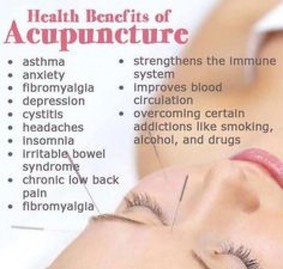
I’m a certified Chinese Medicine practitioner and founder of Heal Within 5.
There are many different forms of Acupuncture however I practice Five Element Acupuncture. It is a complementary therapy and it focuses directly on the individual patient’s needs. Each treatment is specifically planned for the patient and treats the root cause of the condition, not the symptom.
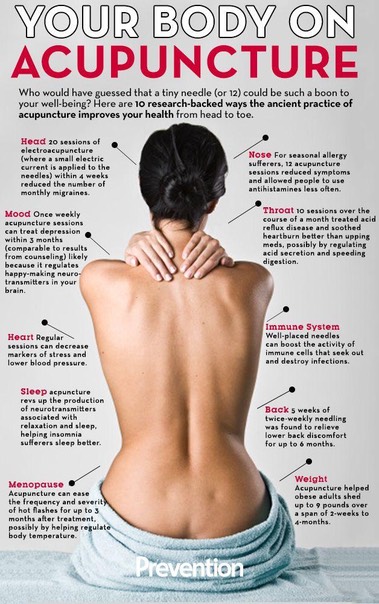
This is very much the Essence of Five Element Acupuncture and the reason why the healing effects can be so profound and complete, allowing the body to reach its full potential of well being.
The treatment is gentle and restorative on all levels, through this thoughtful and respectful approach the body can be guided back to health.
The core insight behind Five Element Acupuncture is that many physical symptoms are the result of spiritual and emotional imbalances. They are problems that stem from within, rather than having arisen due to external events.
As Five Element Acupuncturist we have the way to release emotional-stagnation and support at all levels as we treat holistically. FEA Acupuncture elegantly restores our balance and harmony and returns us to the health and well-being that is our natural right.
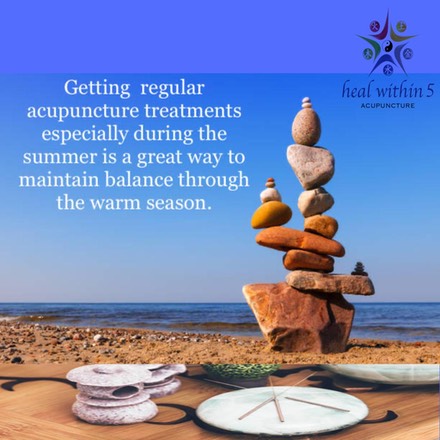
Please do not hesitate to contact me if you require more information or help.
Evi
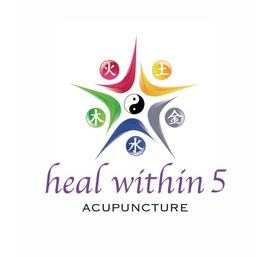
December
Vitamin C to fight viral infections
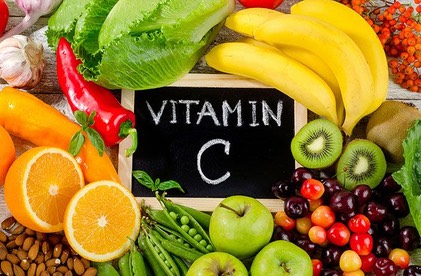
Vitamin ![]() Protects Against Viral Infections
Protects Against Viral Infections
I thought I’d share with you this recent research about the beneficial effects of Vitamins C in relation to the current Coronavirus pandemic...
The physicians of the of the Orthomolecular Medicine and the International
Society for Orthomolecular Medicine urge a nutrient-based method to prevent or
minimize symptoms for future viral infections.
OMNS (2020:1:26) '...The coronavirus pandemic can be dramatically slowed with
the immediate widespread use of high dose of vitamin C. Physicians have
demonstrated the powerful antiviral action of Vitamin C for decades. There has been
a lack of media coverage of this effective and successful approach against
viruses in general, and coronavirus in particular. It is very important to maximize the
body's anti-oxidative capacity and natural immunity to prevent and minimize
symptoms when a virus attacks the human body. The host environment
is crucial. Preventing is obviously easier than treating severe illness. But
treat serious illness seriously. Do not hesitate to seek medical attention. It
is not an either- or choice. Vitamin C
can be used right along with medicines when they are correctly indicated...' *1.
Medicine H. News (2020:2:3) Dr. Robert F.
Cathcart, who had extensive experience treating viral diseases
remarked,'...I have not seen a flu yet that was not cured or markedly
ameliorated by massive doses of vitamin ...'*2. Professor Victor Marcial-Vega of the Caribe School of Medicine responds,'...given the relatively high rate of
success of intravenous vitamin C in viral diseases and my observation of
clinical improvement within 2 to 3 hours of treatment, I strongly believe, it
would be my first recommendation in the management of the coronavirus...'*3.
" Vitamin C must be in the body before the virus, and should stay there all the time. In case of infection, large quantities of Vitamin C are needed because the body uses it up in large quantity, and should replenish all the time"
Vitamin C is so versatile and beneficial and it could very well be one of the
safest and most important vitamins you could take on a daily basis. Vitamin C,
also known as ascorbic acid, or L-ascorbate, is an essential vitamin to the
human body. It is important for so many chemical reactions in the body, that
without it, life would not be possible. Energy cannot be made in any cell either in
the brain or muscles without adequate vitamin C. Vitamin C defends
our body against foreign invaders of every type as the epitome of strength and
immunity*4.
While vitamin C is synthesized in almost all plants and
animals, certain mammals, including humans, cannot synthesized the vitamin as
they have lost the ability to make it because of a mutation in the gene that
codes for the enzyme (L- Gulonolactone Oxidase or GLO). NCBI (2011: 8:12)
states that '...This mutation stop us from catalyzing the last step in Vitamin
C synthesis...'. Our body's inability to synthesize vitamin C has been called
an "inborn error of metabolism". Humans also have a very small
capacity for storing Vitamin C; we can only hold about a 30 day supply. Therefore, it is
absolutely necessary to get our Vitamin C from external dietary sources or
supplements.
Humankind has long suffered from a lack of understanding of basic nutrition. Scurvy was among many diseases suffered due
to malnutrition. Scurvy had long been the scourge of those who sailed for
extended distances without fresh food and supplies, with the first clear-cut
descriptions of the malady appearing in the medieval records of the European
Crusades. Towards the end of the 15th century, scurvy was cited as the major
cause of disability and mortality among sailors on long sea voyages.
Although Danish marines were long
acquainted with the condition, and included lemons and oranges in their marine
stores, it was not until 1753 that scurvy was recognised in the British medical
community at large as directly related to dietary deficiency. It wasn't until
the 1930's that Albert Szent-Gyorgyi
discovered the chemical Ascorbic Acid-Vitamin C- that enables the body
to efficiently use
carbohydrates, fats, and protein. His discovery was among the foundations of
modern nutrition.
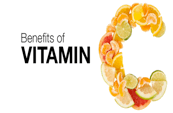
· Boosts function of the immune system.
· Anti Oxidant capabilities.
· Fights cold and prevents asthma.
· Promotes Cardiovascular health.
· Improves absorption of iron.
· May slow cancer growth.
· Reduce the risk of Alzheimer's disease.
· Promotes better vision and eye health.
· Supports optimal collagen product which is essential for bone, blood vessels and skin.
;;;;;;;;;juiiiiiiiiiiiiii
Music as a healing influence
Here I discuss the known health benefits of music and afterwards offer some easy ways to integrate music into your daily life.

“Music gives a soul to the universe, wings to the mind, flight to the image and life to everything.”-Plato
November
Music is for the body and mind
Music can provide peace and happiness and can be uplifting. It can give you the extra motivation you need to run another mile or lift another set of weights. Music can prepare you mentally before a challenge, give a rhythm to dance to, or just provide hours of entertainment. I think that for many of us, music is ingrained in our lives.
Music influences our body consciously and unconsciously
Our bodies and minds recognize the presence of music immediately. When people listen to music, their heart rate increases compared to those who remain in silence. The increase may be very small when listening to calming, peaceful music, or quite high when listening to exciting music. The beat seems to integrate itself into our subconscious minds, and our heart responds. We even breathe slightly more rapidly when we're initially exposed to all kinds of music.
When we enjoy music the effect can be measured in the heart no matter what type of music it is. Normally our hearts are continually being stimulated and relaxed. The sympathetic (adrenalin-mediated) nervous system raises our heart rate and the contractility, or squeeze, of the heart, while the parasympathetic nervous system slows the heart and helps it relax. Music can shift the autonomic balance of the heart and the influence of these two nervous systems in a healthy manner.
Music relieves anxiety during heart procedures
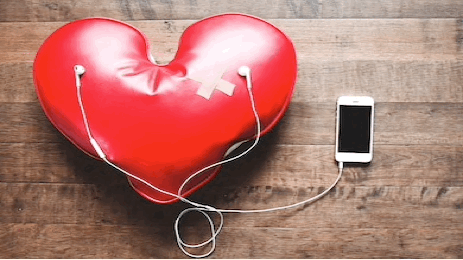
People who live with heart disease typically have higher levels of anxiety. In fact, with some abnormal heart rhythms, anxiety is the primary symptom, along with palpitations. When people who have heart disease listen to music over time, their heart rates and blood pressure levels may decrease.
Listening to music while undergoing heart procedures, like a catheterization used to treat atrial fibrillation, lowers feelings of stress, anxiety, and pain associated with the procedure.
Music can lower blood pressure
It may not be surprising to you that music can lower blood pressure, which rises naturally with stress. Some of the reduction in blood pressure with music exposure likely relates to the fact that it lowers anxiety, as discussed above. But in people suffering from high blood pressure, it can be used directly to lower blood pressure. In patients suffering from high blood pressure, research shows that as music begins to influence the body, the respiratory rate slows, breaths become deeper, and blood pressure is reduced.
If you find you're struggling with periods of high blood pressure despite medications, consider these principles of relaxation, and use music that calms and relaxes you.
For me, listening to relaxing Chinese or classical music provide feelings of calm, tranquility, and peace. It's not the type of music that you like that's important, but how it makes you feel. The stress reduction in enjoying music can be measured directly as they develop a healthier immune system and release less stress-related hormones, like cortisol.
Musical therapy in Chinese Medicine
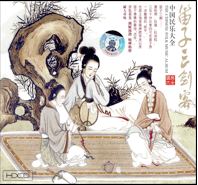 Music can be romantic, rejuvenating, cathartic, relaxing, energizing, empowering: music has touched these emotional chords in human beings for thousands of years.
Music can be romantic, rejuvenating, cathartic, relaxing, energizing, empowering: music has touched these emotional chords in human beings for thousands of years.
In ancient China, physicians developed a systematic approach of incorporating musical notes into the healing process.
The use of music as therapy is documented in China’s first medical text, The Yellow Emperor’s Classic of Medicine, written 2,300 years ago.
Music therapy is an aspect of Five-Element theory, which is foundational to traditional Chinese medicine. All things in nature are composed of the elements of earth, water, fire, metal and wood. Each of these elements has many corresponding aspects, such as season of the year, internal organ, color, musical note, etc. Classical Chinese music was composed from five notes or sounds — jiao, zhi, gong, shang, and yu — and was performed on classical Chinese musical instruments such as drum, gong, flute and zither. Chinese medicine uses the relationship between internal organs and five-element correspondences, such as musical notes, to achieve different healing purposes.
According to this theory, the “jiao” note (corresponding to E in Western musical notation) belongs to the wood element, is the sound of spring, and influences the Liver. It promotes the smooth functioning of Liver Qi, helping to relieve depression. The “zhi” note (corresponding to G) belongs to the fire element, is the sound of summer, and influences the Heart. It helps to nourish the Heart and invigorate blood flow. The “gong” note (corresponding to C) belongs to the earth element, is the sound of late summer, and strengthens the Spleen. The “shang” note (corresponding to D) belongs to the metal element, is the sound of autumn, and protects and nourishes Lung yin. The “yu” note (corresponding to A) belongs to the water element, is the sound of winter, and helps to nourish Kidney yin, protect Kidney essence, and reduce Lung fire.
Recently, three clinical studies in China tested the healing power of classical Chinese five-element music. A study conducted in Taiwan and reported in the International Journal of Nursing Practice (March 2014) was designed to evaluate the effects of Chinese five-element music therapy on nursing students who reported suffering from depression. Seventy-one nursing students with depression were randomly assigned to either a “music group” using five-element musical therapy, or a control group. Otherwise, both groups followed their routine lifestyles. They were assessed by the Depression Mood Self-Report Inventory for Adolescence, and their salivary cortisol levels were measured. The study found that, over time, there was a significant reduction in levels of depression in the music group, based on pre- and post-therapy test scores and salivary cortisol levels.
The second study explored the effects of five-element music therapy on elderly patients with seasonal affective disorder. Fifty patients in a Beijing nursing home were randomly assigned to either a musical treatment group or a control group, with 25 participants in each group. The music group heard five-element music for one to two hours per week over an eight-week period. The self-rating depression scale (SDS) and Hamilton depression scale (HAMD) were used to assess the patients before and after treatment.
No significant difference in SDS and HAMD scores was found between the two groups before the treatment. After eight weeks of music therapy, the SDS and HAMD scores of the music-treatment group were significantly lower than those for the control group (Journal of Traditional Chinese Medicine, April 2014).
The objective of the third study was to evaluate the effects of five-element music on the quality of life for patients with advanced cancer. Advanced-stage cancer patients were randomly assigned to one of three groups: the five-element music group (68 patients); the Western-music therapy group (68 patients); and a group that received no music therapy (34 patients).
Both the five-element and the Western-music groups listened to music 30 minutes each day, five days a week, for three weeks. Patients were assessed with the Hospice Quality of Life Index-Revised (HQOLI-R) and Karnofsky Performance Score (KPS) before and after treatment.
Results showed that there were significant differences in the HQOLI-R and KPS scores after treatment between the five-element music group and the other two groups. This study concluded that five-element music therapy could improve the quality of life and KPS for advanced cancer patients (Chinese Journal of Integrative Medicine, October 2013) .
Studies have shown that music can affect brain waves, brain circulation, and stress hormones. Music therapy seems to be especially effective in reducing the physiological effects of stress: it can slow the heart rate, reduce blood pressure, decrease breathing rate, and strengthen the immune system. Music also can expand the mind. A study (Nature, April 1998) suggested that the area of the brain used to analyze the pitch of a musical note can be enlarged through practice and experience of music by 25 percent.
The studies cited above do not specifically prove five-element theory that the “zhi” note calms the Heart, or the “shang” note nourishes the Lung. But they certainly give scientific validation to the wise Chinese doctors who invented a form of music therapy more than 2,000 years ago.

Music speaks what cannot be expressed, soothes the mind and gives it rest.
Heals the heart and makes it whole, flows from heaven to the soul.
So close your eyes and let the music set you free with this simple tips:
v Getting ready in the morning
You can wake yourself up with music and start your day feeling great. By selecting the right music, you can set the tone for a lower-stress day. Classical or instrumental music can help you wake up while keeping you calm and focused. If you have a big, busy day ahead that requires extra energy, try something that's upbeat and makes you want to dance and smile.
v During a commute
Put an end to road rage by playing your favourite music in the car.
- It can relieve some of the tension you feel from the commute itself and the day so far.
- It can help you feel less like you’re wasting time in traffic and more like you’re having some nice time to yourself.
- It can take your mind off of all that you need to get done once you reach your destination. You will arrive less stressed and more prepared to take on what awaits you.
- Try switching to a classical station when you are really stressed out. The soothing rhythms and sounds can calm you down and make your commute smoother.
v Cooking
Good nutrition is an important part of a healthy lifestyle and it can actually keep your stress level down. Eating at home is a great way to ensure healthy meals and less expensive, but many people find themselves too tired to cook once they get home.
If you put on some smooth jazz or a similar genre of music that you enjoy, cooking becomes a fun activity rather than a chore. You will likely find yourself relaxed and in a better frame of mind once dinner starts, which can enable you to savour your dinner and your company as you eat.
I always play my Greek music while I am cooking so don't be surprised if you pop in and catch me dancing!
v While eating
Music can also be a helper as you’re eating your meal. Soothing music can trigger the relaxation response, which can lower cortisol levels, making it easier to digest food.
Studies have shown that classical music, in particular, can help you eat less, digest better and enjoy your food more.
v Cleaning
Keeping a simple, organized home can really help to cut down on your stress level, but cleaning itself is a chore that many busy people don’t have the energy to face after a long day. However, if you throw on some energetic music (hip-hop or pop, for example) you can raise your energy level and have fun as you clean.
If you tell yourself that you only need to clean for a certain amount of songs and then you can be done, you may work more efficiently. Who knows, you may even come to look forward to doing the job.
v Before Bed
Getting enough sleep is important for proper functioning, and getting enough sleep can help you handle stress better. Unfortunately, stress can also interfere with sleep in several ways. Playing music as you drift off is one way to counteract the effects of stress by taking your mind off what’s stressing you. Music can help slow down your breathing and soothing your mind.
October
Internal and external factors could be a cause of disease in our body kingdom.
In internal factors we include all the emotions including (anger, joy, pensiveness, grief, fear) and external factors are closely related to the weather ( climatic factors) and the Seasons (including wind, cold, Summer-heat , fire, dampness , dryness).
As I am recovering after I experienced one of those factors I am sharing some information from the Great wisdom and deep Philosophy of Chinese Medicine.
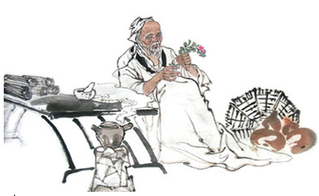
Forget the pills and stay healthy this winter with these pearls of wisdom Chinese Medicine.
As the temperature drops, sniffling red noses are appearing in the crowds and the fear of catching that dreaded seasonal bug is on our minds. But before you stock up on a mountain of tissues and reach for the pills, you might want to consider an alternative line of defense.
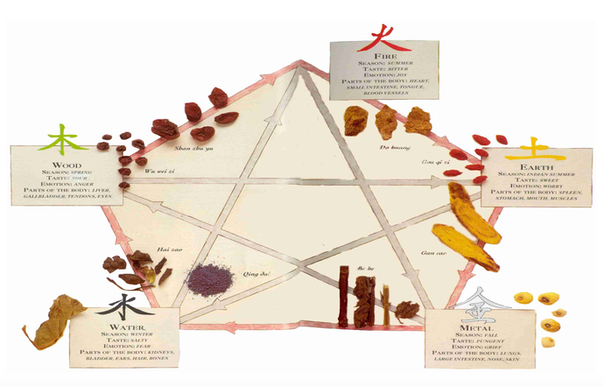
1. Stay balanced
A healthy life requires living in harmony with nature and understanding the character of the season to leverage its force and minimise imbalances. The theory of the winter season is one of conservation and storage, a time when all things in nature wither, hide, return home, and enter a resting period, just as lakes and rivers freeze and snow falls. Desires and mental activity should be kept quiet and subdued, as if keeping a happy secret. Winter is when Yin dominates Yang, therefore we need to take measures to restore the balance and refrain from overusing the Yang energy, by following the following simple rules.
2. Don’t get cold feet
Cold weather causes our body to slow down and contract, which can make us even colder and lead to poor circulation which triggers symptoms such as aches, asthma, arthritis, or colitis. According to ancient Chinese medicine, the body Qi (the Chinese term for life energy) needs to be conserved by keeping warm, but not hot. So on cold and windy days, enjoy the comfort of your warm house. Avoid sweating when taking hot showers as the pores of the skin open and Yang Qi is easily lost. A good idea is to keep your feet warm by having hot-water footpaths and if you need a hot water bottle, it is best to put it down by your feet. In Chinese medicine, we believe that for proper fluid and energy movement to take place in the body, the head should be relatively cool and the feet warm.
3. Care for your kidneys
The organs of winter are the kidneys and bladder. When we talk about the kidney from the Chinese medicine perspective, we actually mean much more then just the organ itself. In traditional Chinese medicine, the kidney system includes the adrenal glands and the reproductive system, and our energy stems from it. The kidney system is responsible for strengthening bones and teeth, hair, healthy sexual function, fertility, and wisdom, therefore if the energy of our kidneys (the deepest fire in our body) is out of balance or exhausted for too long, then we might experience Kidney Yin or Yang deficiency. Symptoms of kidney Yang deficiency include feeling cold and tired, aching and coldness in the lower back and knees, frequent urination, low libido, infertility, or impotence.
Moxibustion is a common way to regain the fire and stimulate circulation and induce a smoother flow of blood and Qi, as well as combining acupuncture with burning Mugwort (an aromatic plant) close to specific body parts. In contrast, a kidney Yin deficiency brings symptoms like dizziness, ringing in the ears, dry throat and mouth, lower back pain, weak legs, sweating, or a very red tongue. It also has emotional symptoms like insecurity and fear. People who lack kidney Yin tend to feel restless, moving from one issue to the next without getting to the cause of the problem.
4. Say ‘No’ to cold foods
In winter we need to eat foods that create warmth and support the kidney Yin and Yang. Cold and raw foods and drinks are best avoided because our body expends so much energy warming itself up before it can break these down and utilise them. So hold off the green smoothies until the thermometer rises, especially if your body constitution is cold and pale. You don’t need to totally avoid cooling food, but it’s always good to eat a balanced diet, so you need to increase the portion of warming food and decrease the portion of cooling food. Eat lots of warming foods like cloves, fennel seeds, black pepper, ginger, walnuts, turtle beans, onions, leeks, shallots, chives, beef, and lamb.
Foods that nourish the kidneys include sweet potatoes, kidney beans, black beans, squid, millet, and sesame seeds. Usually food of black or red colour are good for the kidneys. Prepare the food in a way that can add to the warming nature like stewing and slow cooking. Soups and congee are also especially good for winter.
5. Learn to relax
We’ve all heard of the January blues, with fear and depression spreading throughout communities, but according to the ancient Chinese medical text, Huangdi Neijing Suwen, this can take its toll on our bodies. A prolonged, excessive fear can harm our kidney energy, and vice-versa. We can experience fear in two different ways, either as a sudden shock or as an underlying negative emotion that prevents us from feeling safe. So what is the solution?
It helps to remind ourselves that our world will always be something beyond our control. We will only be able to enjoy life when we are in harmony with ourselves, so try to find your purpose and learn to trust and let go. It pays to keep life simple. Winter is the perfect time for rest, reflection, conversation, and storage, so get plenty of sleep, reduce stress, and don’t worry. Find your personal way of relaxing, whether it be yoga, meditation, biofeedback, or simple relaxation therapy. Just try to release the stress and pressures of modern life – that way you will achieve perfect harmony with winter.
March
What is Coronavirus?
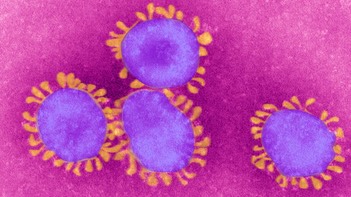
Coronavirus is a zoonotic disease, meaning the virus has been transmitted from animals to humans. The main thing that differentiates Coronavirus from other flu pandemics is that it spreads easily and widely. As symptoms don’t appear immediately (and as severely as they did with SARS), coronavirus is harder to identify and isolate early. Many people don’t even know they’ve contracted it and they are spreading it without realising.
The other issue is, Coronavirus spreads from person-to-person, transmitted through respiratory droplets when someone coughs or sneezes. The infection can also be contracted by touching a surface or object that has the virus on it, which can spread to the nose or mouth if hands are not washed thoroughly.
Coronavirus v. the Flu
Millions of people get flu infections every year, with the majority making a swift recovery without long-term complications.
In the following tables, I highlight how Coronavirus and annual flu statistics compare and the number of coronavirus cases in the UK and Ireland to date:
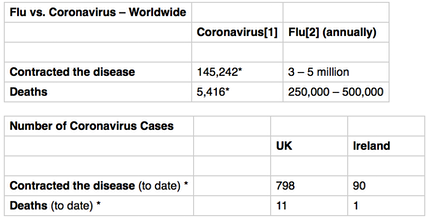
*These are the most recent figures at the time of writing.
[1] https://www.worldometers.info/coronavirus/
[2] https://www.medscape.com/answers/219557-3459/what-is-the-global-incidence-of-influenza
Who is most at risk of Coronavirus?
- The weak elderly
- The chronically ill and people with weakened immune systems
- Smokers and drug users
- Those taking medication
The majority of the Coronavirus fatalities have been people over the age of 70.
Coronavirus symptoms
Symptoms usually appear between two to fourteen days of exposure to the virus. Some people may be asymptomatic. Common signs of infection include:
- Fever
- Dry cough
- Shortness of breath or breathing difficulties
- Pneumonia in severe cases
Wet coughs and a runny nose are not symptoms of Coronavirus.
Standard recommendations to prevent infection spread include:
- Regular hand washing
- Covering mouth and nose when coughing and sneezing
- Thoroughly cooking meat and eggs.
- Avoid close contact with anyone showing symptoms of respiratory illness such as coughing and sneezing.
Should we be worried about Coronavirus?
With Coronavirus dominating the headlines and the disease appearing to spread by the minute, it’s no wonder there is fear and angst amongst people. There is a lot of hype and misinformation in the media at present causing further confusion and anxiety.
Let’s clear something up – Covid-19 (Coronavirus) is not life-threatening for most people. Compared to other global pandemics, the mortality rate is much lower.
The table shows the mortality rates for other infections:
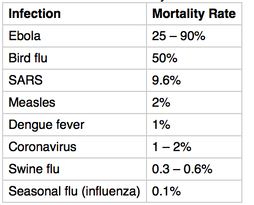
The majority of people who have contracted the disease and subsequently died have been over 50 years old with other health problems such as asthma, diabetes and chronic lung issues. Even though some children have contracted Coronavirus, their symptoms appear to be mild and complications are uncommon. As awareness and diagnosis is improving, mortality rates seem to be slowing and recovery rates improving.
So Local Mums, don’t panic...
Instead, take the necessary hygiene precautions and steps to boost your immune system to avoid getting sick:
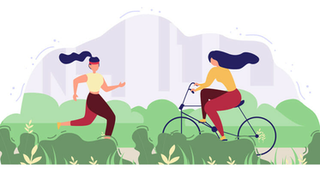
- Coronavirus is not heat-resistant, meaning it will be killed off in an environment of 26 – 27°C and completely disappear if exposed to the sun. Maintaining heat in the body is essential; you can achieve this by drinking hot water, eating heating foods (such as ginger, pepper and chilli) and doing exercise.
- Keep your immune system strong with a balanced diet including plenty of immune-boosting foods like garlic, ginger, berries and green vegetables.
- Cut down on junk food, sugar, coffee, alcohol and smoking as these bad habits have a negative effect on the immune system and can make you vulnerable to infection.
- Support your body with immune-boosting supplements: zinc, antioxidants and vitamins A, C and D.
- Stay active and fit as regular movement stimulates your lymphatic system, enabling your immune cells to circulate the body and kill off viruses.
- Keep well-hydrated so your immune cells can function efficiently.

I have listed below some of the most powerful immune building foods to consume daily to keep that immune system fighting
Celery juice: Kills off pathogens, including flu viruses. It’s unique form of vitamin C doesn’t need to be converted by the liver, which means it instantly strengthens the immune system.
Cucumber juice: Has anti-fever compounds and agents that help calm a fever, like water on a fire. It’s also deeply rejuvenating and hydrating.
Lemon water: Excellent for the immune system, detoxifying the liver and body, rehydrating and even helping with nausea.
Ginger water: Helps prevent colds and flus and helps alleviate fatigue, nausea and sore throats. Ginger also has its own signature variety of vitamin C and helps bring the body out of a reactive state when you’re sick.
Thyme tea: Anti- viral and helps soothe coughs, relieve fevers and fight colds and infections.
Turmeric ginger shots: A potent combination of fresh turmeric and ginger juice, or try the recipe with oranges and garlic too. These shots boost the immune system and can be sipped all day to prevent illness.
Fresh fruits, leafy greens and vegetable juices, when at room temperature, offer a plethora of different nutrients and antioxidants your body needs to heel. In juiced form, they allow the body to heal as easily as possible. Try juicing apples, oranges, kale, cucumbers, asparagus, melons, celery, cilantro, parsley, dandelion, spinach.
Raw honey: Assists your body in keeping a strong first line of defence by strengthening neutrophils and macrophages so they can fight off pathogens. If you feel like you’re coming down with something, take a teaspoon of raw honey before bed. Add raw honey to lemon water to enhance the honey’s bioflavonoids and give the drink an additional immune boost.
Raw garlic: It’s anti- viral and anti- bacterial, killing off only unproductive bacteria. it’s also extremely immune strengthening.
Start thinking ‘wellness' not ‘illness' and keep safe.
April
As Easter is approaching making Easter fun for kids by whipping up cool and festive snacks is a great way to brighten up the holiday but parents need to make sure that the treats are healthy. Too many sugar-filled snacks will inevitably take a toll on your child’s health. Luckily, there are countless ways to make Easter food fun for kids without putting their health at risk.
It is now known, not to say acceptable nowadays, that there is a strong phenomenon of childhood obesity. This results in increased rates of overweight children with high levels of fats and blood sugars such as triglycerides and glucose. As has been said on several occasions by doctors and dieticians overweight or even obese children are more likely to become overweight/obese adults so they are at greater risk for cardiovascular disease, diabetes Type 2 and metabolic syndrome.
So what exactly is it about this downhill of the level of health to our children? The answer to this question is not simple and cannot be answered in a single word.
ϖ Certainly the right and healthy diet is a key factor in avoiding obesity. But we adults and more specifically parents should not forget that children act like mirrors. What does that mean? That children behave like adults who are close to them. They tend to like what their parents like, and not like what their parents don’t like. This is also the case with the feeding of young children. It is very important that parents realise that their behaviour around the issue of health is an example to be emulated for their children. Let us not wait or much less require children to eat healthily and not be overweight when the environment around them does not follow a healthy lifestyle.
ϖ A child has a 50% chance of becoming obese if one of the two parents is obese while these chances increase when both parents are obese.
ϖ Obesity is due, as we said at the beginning and in family/environmental factors. If a child is staying in an environment that is not offered for outdoor play it is natural to find some forms of entertainment that however promote physical inertia such as TV, computers, computer games etc.
ϖ The accumulation of excess weight in children may still be due to the replacement of some feelings with food. Many parents are accustomed to reward their children with food, either by giving them sweets for a job that they have finished successfully, or by taking them to eat in fast (fast food) MGA subconsciously the food is equated with a positive feeling about it and several children after as adults develop emotional overeating i.e. they eat something that causes them positive emotions to cope with another negative emotion.
The 7 + 1 must in children's nutrition: The common denominator in happiness, success, growth and proper nutrition is balance. When, in fact, they are our children, the expert's opinion is necessary.
What are the key points that we need to focus on?
The child's diet must be characterized by variety, measure and balance in order to be able to meet its needs in nutrients necessary for the uptake of the required energy, for the development of its organism and for the protection.
ϖ Breakfast
Very important is the consumption of the morning meal. Many studies show that students who eat breakfast perform better in lessons than those who do not consume.
ϖ Many and often meals equally important is the existence of many and frequent meal. Intermediate meals offer the body continuous energy and help to maintain glucose at constant levels.
ϖ Fruits and vegetables Children should consume at least 5 servings of fruit and vegetables daily (1 portion of fruit corresponds to 1 medium fruit and 1 serving of vegetables corresponds to 1 flames. Raw or ½ flames. Boiled vegetables).
ϖ Wholegrain Products
The whole grains and their products should be the basis of the daily diet of the child.
ϖ Protein in the daily diet should include foods rich in protein e.g. fish, lean red meat, poultry, eggs, legumes.
ϖ Fish and omega-3 fats Omega-3 fatty acids are essential for the body, as they cannot synthesize them on their own and must receive them from food. These fats are essential for the development of the nervous system as well as for their anti-inflammatory effects. Foods rich in omega-3 fatty acids are oily fish, seafood, walnuts, linseed. Twice a week the family must consume fish, one of which is greasy.
ϖ Olive oil
As the main source of fat of the diet choose the extra virgin olive oil.
ϖ Water, very precious; do not underestimate water.
Adequate water intake plays an important role in the physical, neurological and emotional condition of the child. When children are hydrated they have more energy and are more concentrated. Even a mild dehydration can slow down brain functions.
If you’re looking for ways to keep your little bunnies bright-eyed and bushy-tailed this holiday season, consider whipping up one of these healthy snacks:
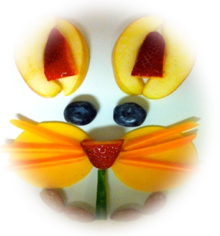
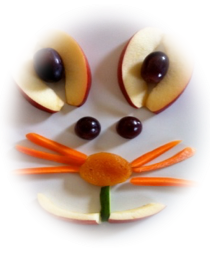
1. Healthy Fruit and Vegetable Bunny Snack
Great for outdoors post egg hunt snack! You can use apples, strawberries, blueberries, cheese cut in circles, carrots, cucumber, and mini almonds but feel free to get creative with what you have on hand! You can even pre-cut everything and have your kids put together their own bunny! 2. Bunny Easter Lunch
This Easter, make with your kids this fun and festive bunny rabbit sandwich lunch. It doesn’t get any cuter than this when it comes to a cool Easter lunch!
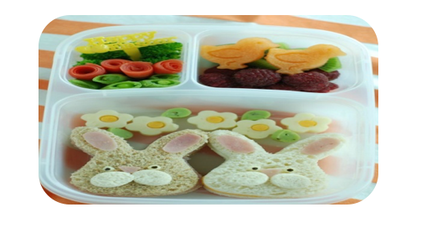
3. Cute Devilled Egg Chicks Trade the plain deviled eggs for these adorable hatching chicks, sure to be the hit of your Easter brunch. These particular guys use pimento-stuffed olive slices for the eyes and little pieces of carrot for the feet and beaks. Everyone will love these healthy and fun snacks this Easter weekend!
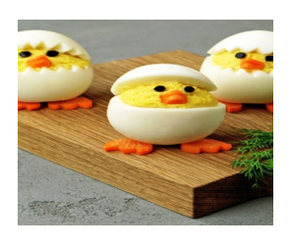
4. Easter Eggs (D.Ella's Recipe - Notification: Not suitable for people suffering with nuts allergies)
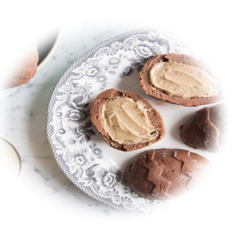
Ingredients:
1/2 a cup of cacao butter 2 tablespoons of raw cacao powder 3 tablespoons of date syrup 2 tablespoons of almond butter 1 cup of dates 3 tablespoons of boiling water 250g of cashew nuts 1 teaspoon of vanilla powder
Method:
For the cashew butter:
Pre-heat the oven the 180C, then once the oven is hot place the tray of cashews in to bake for about ten minutes – until they start to go golden brown but aren’t burnt Take the cashews out the oven and let them cool. Once cool place them in a food processor with the vanilla powder and blend for about ten minutes, until the mix is totally smooth and creamy. It’s so tempting to stop blending once it gets sticky but let it keep going until it’s runny, trust me – it’s so worth the extra few minutes! You do need a really strong processor, like a Magimix to do this sadly, a weak one won’t make it totally smooth.
For the chocolate:
Place the cacao butter in a saucepan and melt on a low heat with the almond butter. Once they’ve melted pour the liquid into the food processor with the remaining ingredients and then blend until smooth. Place the chocolate mixture into the silicone easter egg moulds. Mould the chocolate using the back of a tablespoon so that all the sides are covered and there is a shallow space left for the cashew butter.
Place the moulds in the freezer for 30 minutes. Take the Easter eggs out of the freezer and pop them out of the moulds.
Add a heaped teaspoon of cashew butter into half of the chocolate moulds. Place the cashew butter in the centre of the halved egg, enough so that they completely fill the hollow space.
Place the remaining chocolate moulds on top of the cashew butter filled moulds. Smooth round the edges of the eggs so that each half sticks well together.
Place the whole eggs back into the moulds and then freeze for at least an hour. Then take them out the freezer and let them sit for 10-15 minutes before eating!
August
My tips for a healthy Summer Holiday
Dear Local Mums,
I am sure you are excited about the Summer Holidays and many of you will be ready to hit the beach and pool with family and friends; the summer is also a time for many of us to travel the world.
I would love to wish you
A VERY HAPPY SUMMER HOLIDAYS
and share with you some inspirational and healthy Aromatherapy tips after I was inspired while I was preparing my essential travel Aromatherapy kit.
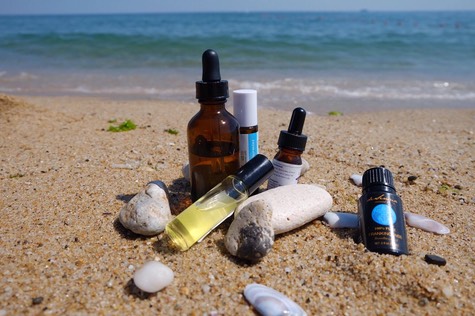
Every trip, especially long distance, is often associated with a change of climate, environment and different time zones. Inevitably the long trip, whether by train, plane, cruise ship or car, would cause us a rather close and almost intimate contact with other passengers. We become exposed to a lot of health hazards like viruses, foreign bacteria and the extreme weather conditions which can contribute to challenging our immune system further.
During prolonged travel, especially if changing a few time zones, we lack sleep leading to jet lag, we may not eat properly or at the correct times (who enjoys the food on a plane, if we are lucky to get it?) and we never seem to drink enough water, especially with the stringent airport security measures, restricting the liquids to 100 ml per person.
The result is often pretty harmful to our health; the lack of sleep, poor nutrition and dehydration leave our bodies tired and weak, becoming easy victims to cold, flu and gastrointestinal diseases. Often the accommodation we end up in hotels and resorts may not be all that sanitary and we may be exposed to other issues, like mold, bed bugs, fleas and insects.
Many people try to manage all these hazards using pharmaceuticals (melatonin or tranquilizers to help them sleep, antihistamines to fight bites and allergies, disinfectants and sprays against bacteria and insects, synthetic multi-vitamins and flu shots). The truth is that even if these chemicals help on some level temporarily, they all have side effects and ultimately can damage our delicate immune system even more.
Through a tedious trial and error, I have come to realize that the only way to go about facing such challenges is by natural means, i.e. with the help of super foods, herbs and essential oils, you can achieve optimal results protecting yourself and your family at home or abroad from infections and parasites, while strengthening your immune system, without any side effects.
When I first discovered the benefits of Aromatherapy, I could not believe that I had lived without it!
Not only are most of the herbs and essential oils are pretty inexpensive and easily accessible, but they have a wide range of benefits that even the strongest antibiotics can not achieve, for example the most potent antibiotic can only kill around 60% of known bacteria and is totally useless against viruses. Not to mention, our bodies quickly become resistant to many antibiotics, rendering them further pointless and what is worse, some of their harmful elements build over time in our bodies. Many essential oils on the other hand (tea tree, lavender, cinnamon, garlic, thyme, clove, eucalyptus, peppermint, oregano, frankincense, etc) individually, as well as in various combinations can destroy 99.9% of viruses and bacteria, without harm to the human body.
The spectrum of health benefits of the essential oils is extremely broad. They help us live in a healthier environment by fighting mold, parasites and insects and with their antimicrobial qualities, they can prevent or treat illness, enhance our immune system, help us replace and eliminate harmful chemicals in cleaning products, cosmetics and even help against sun damage. In short, the essential oils have many applications in our households and every day life. They are much cheaper than expensive chemicals and medication, they are easy to find, relatively durable (some last for up to two years), and they also come in tiny bottles, making them practical to store and easy to carry.
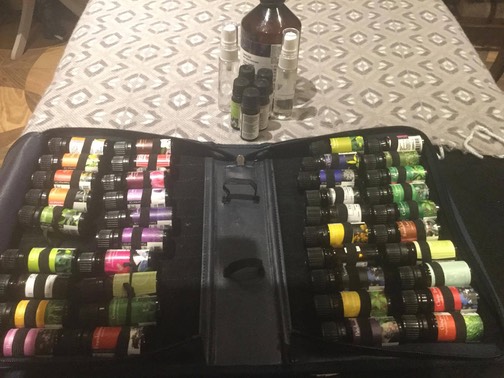
While the benefits of essentials oils are endless, I will share a few recommendations:
For a healthy family Summer Holiday...
- When flying or riding the train or a bus, you will have people close to you, often sneezing and coughing, spreading germs. I find it useful to have a small inhaler with essential oils that I can use to help me breath, or have a small spray bottle with essential oils blend that I can spray my scarf with. I have one of these kits (inhaler capsules) and even made some inhalers for my family and friends. It was a lot of fun to play with the chosen favourite aromas of various essential oils and you can customise with whatever essential oils you wish.
- Very useful are also the essential oil sticks. They come ready made with blends or you can fill empty roll on bottles with your favorite carrier and essential oils and use to apply all over your body as a perfume, mood uplifted or insect repellent (peppermint, eucalyptus, lemon, citronella). Also you can customise insect repellent with the use of a spray bottle and the mixture of floral water like lavender and the addition of a few drops of essential oils.
- Another fancy way to carry your oils is in your jewellery. You can have ear-rings or a necklace charged with essential oils that can uplift your mood, keep you concentrated and at the same time reduce the germs around you.
- I am sure all women have noticed that when traveling even a few hours on a plane, the skin suffers the most. Usually we sport either a puffy face, dark circles under the eyes and this is no surprise, considering that the pressurized cabins, the air-conditioning and the filtered air in the planes all work together to effectively dehydrate the skin and no matter how many expensive cosmetics we use, the result is abysmal. Applying carrier oils (enriched with Essential oils ) can retain the moisture in the skin much longer thus helping it look fresh and rested after long trips. My top favourite carriers oils are Rose Hip and Jojoba. For very dry skin I use Grape seed or Almond and I usually add a few drops of Rose Otto and Lavenda which help enrich and enhance the base oil further, helping the skin to retain moisture.
July
Every thought that enters the mind manifests physically. So many conditions are stress related. Careful what you think about…
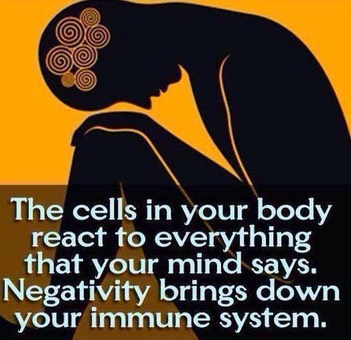
Our stress style
Our stress style is developed through the course of our lives, partly as learned behaviour. Re-learning the ability to relax is important and you can achieve that by:
- Recognising the stressors in your life
- Deciding that you want to do something about it
- Addressing all aspects
- Taking better control of your working life
- Using leisure time more effectively and reserving time for your family and friends
- Learning to relax, as relaxation produces a biochemical change in the brain which enables the mind, body and spirit to balance.
- Taking up a hobby
There are numerous natural treatments to choose from to help us to "unlearn" and therefore improving our ability to deal directly with sources of stress and keep stress levels around the normal zone.
Try a holistic/therapeutic massage, known as the oldest healing art. Massage can help long term stress sufferers. Any relaxing massage may help switch the body from a state of stress to relaxation, help reduce the effects of stress on the body and ease the transition from a body in state of stress to a body in a state of relaxation.
Have a good look at your diet and establish a healthy eating which includes lots of water, fruits, vegetables and natural source of vitamins potassium and minerals. Avoid fatty and sugary foods.
Are you getting enough sleep? Adequate sleep is vital for our well-being as sleep enables our body to repair and heal itself.
Last but not least..!
Smile a little more often and respond positively to others. Do something for others without hope of reward. Develop a sense of fun and the ability to laugh.
June
Hi Local Mums,
I am sure the most of us welcome the hot weather but when it's too hot for too long there are health risks. That's why I am sharing tips for coping in hot weather to make sure it doesn't harm you or anyone you know. I have also included a new article about the benefits of water intake, which includes weight loss, and the importance of consumption particularly in hot weather.
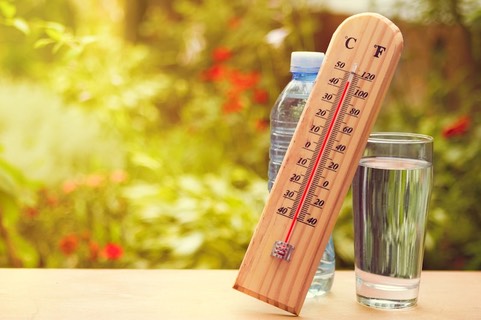
- Drink cold drinks regularly, particularly water and diluted fruit juice to avoid dehydration. Avoid excess alcohol, caffeine (tea, coffee and cola) or drinks high in sugar.
- Have cool baths or showers and splash yourself with cool water.
- Avoid the heat: stay out of the sun and avoid going out between 11am-3pm (the hottest part of the day) if you are vulnerable to the effects of heat.
- Shut windows and pull down the shades when it is hotter outside. You can open the windows for ventilation when it is cooler.
- Wear loose, cool clothing, ( cotton blend), hat and sunglasses if you go outdoors.
- Listen for alerts on the radio, TV and social media about keeping cool.
- Keep rooms cool by using shades or reflective materials to block the sun from outside but if not possible use light-coloured curtains and keep them closed.
- Use bowls of cold water or humidifier to moisture the dry atmosphere in the rooms.
- Check up on friends, relatives and neighbours who may be less able to look after themselves
This is happening to your body when you consume only water
We all understand that it is best to stop drinking coffee, soft drinks and alcohol but few know the benefits to our body. But what if we replace water with all other beverages?
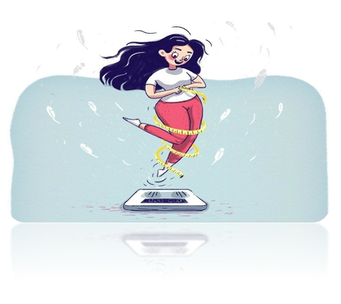
The well-known blogger and professor Chris Bailey dealt with the issue and prepared for you a fun infographic explaining the effect of water on our organization.
You have the chance to lose weight faster. To lose half a pound, you can drink water for nine consecutive days instead of other beverages. You will lose the same amount of calories if you have a daily run of 8 km.
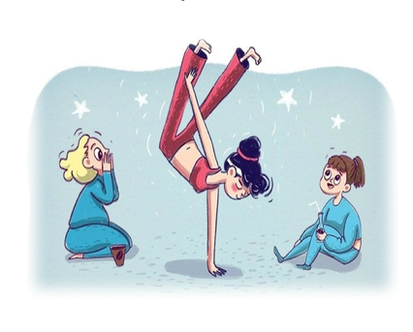
You will achieve your metabolism, which will help to boost energy levels. When you drink water quickly, metabolism is activated.

0.5 liter of water in the morning can boost metabolism by 24%.Your brain will start working better. The brain consists of 75-85% of water, so maintaining the balance of water in the body will give fuel for its operation, which affects the level of concentration.
You will eat less. Water reduces your appetite and therefore will reduce your weight.
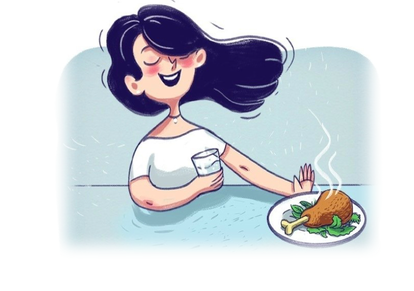
Your body will quickly remove toxins. The water flushes naturally the toxins and disintegration products, protecting the body from premature aging.
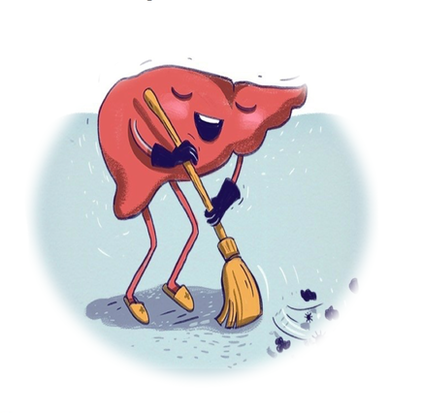
Water reduces the risk of many diseases. These include high blood pressure, bladder disease and even bowel cancer.
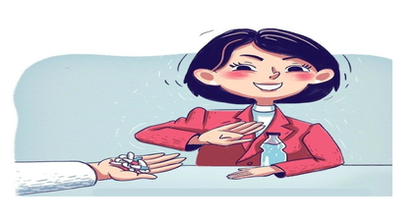
Your heart will work much easier. When we become dehydrated, blood becomes less fluid, which means that the heart is more difficult to draw and the risk of blood clots increases. Five glasses of water a day reduce the risk of heart attack by up to 41%.
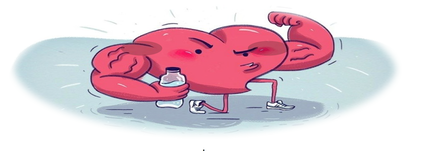
A month later you will notice that skin becomes softer and the pores cleaner. Water purifies and moisturizes the skin with moisture from the inside.
February
Asthma
To have to watch your child wheezing and fighting for breath must be heartbreaking and frightening at the same time; I can totally understand this as a mother. It is encouraging to know that some people, particularly children, may eventually grow out of asthma when they get older.
In this blog I aim to provide information about asthma and advise you with some tips about how as, a parent, you can help your child.
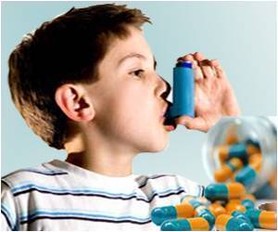
If your child has asthma, your child's airways (breathing passages) are extra sensitive or "twitchy." When your child is surrounded by certain conditions or triggers your child's airways become narrower. This makes it hard to breathe. It is caused by inflammation (swelling) of the breathing tubes ( the bronchi) that carry air in and out of the lungs. This inflammation makes the breathing tubes highly sensitive, so they temporarily became narrow and sometimes became clogged with sticky mucus.
Asthma is the most common illness in children. These symptoms may be mild, moderate, or severe. Sometimes your child may feel well, and at other times your child may feel worse because of the asthma. About 10% to 13% of children have asthma.
Narrowing of airways in asthma
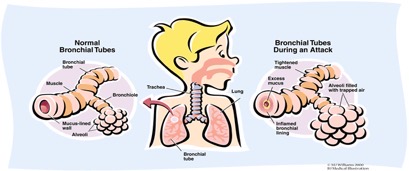
The lining of the airways gets thick and swells (inflammation).The muscles around the airways squeeze together and get tight. This is called bronchospasm or bronchoconstriction. The airways make a lot of thick liquid (mucus).
Asthma symptoms are not always the same:Asthma symptoms are different in different children, even within the same family. Your child may have different asthma symptoms triggered by different things. Your child's symptoms may look or feel different from one episode to the next. They may change over time. On some occasions the symptoms could be mild and in others severe. A severe onset of symptoms is known as an asthma attack, or “acute asthma exacerbation."
The most common signs of problems with asthma include:
Non-stop (continuous) or on-and-off (intermittent) coughing without a cold
Ttrouble breathing
Chest tightness
High-pitched whistling sounds when breathing (wheezing)
Coughing throughout the night that wakes up your child
Coughing so hard that your child throws up (vomits)
Cold-like symptoms, such as coughing, trouble breathing, or congestion, that last a long time (3 to 4 weeks)
Difficulty exercising; not being able to keep up with other children during physical play
Coughing, trouble breathing, chest tightness, or wheezing when your child is around certain conditions, such as animals, dust, or cold air.
Asthma symptoms in older children:
Your child tells you “My chest hurts,” “My chest feels funny,” or often says “I feel tired.”
Your child avoids sports activities.
Your child does not want to go out or play with other children.
Not everyone will get all of these symptoms. Some people experience them from time to time, a few people may experience these symptoms all the time.
Causes:
It is difficult to say for sure what causes Asthma. What we do know is that:
You are more likely to develop asthma if you have a family history of asthma
Family history of allergies and allergic disorders like eczema or allergies
Many aspects of modem lifestyle - such as changes in housing and diet and a more hygienic environment
Research has shown that smoking during pregnancy significantly increases the risk of a child developing asthma
Children whose parents smoke are more likely to develop asthma
A respiratory infection called respiratory syncytial Virus( RSV) during childhood
Low birth weight
Environmental pollution can make asthma symptoms worse and may play a part in causing some asthma
Adult onset asthma may develop after a viral infection
Irritants founds on the workplace may lead to a person developing asthma known as Occupational Asthma.
Triggers:
A trigger is anything that irritates the airways and causes the symptoms of asthma. Everyone's asthma is different and you may have several triggers.
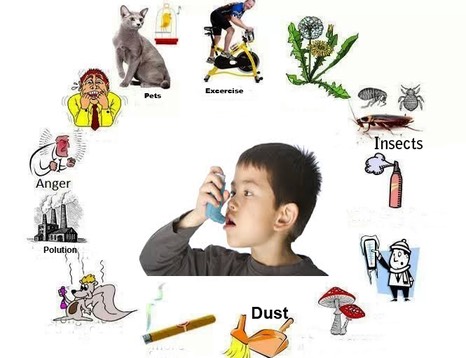
An important aspect of controlling your asthma is avoiding your triggers. Read about the potential triggers. It's important to identify possible asthma triggers by making a note of where you are and what you're doing when your symptoms get worse. Some triggers, such as air pollution, illnesses and certain weather conditions, can be hard to avoid. But it may be possible to avoid other triggers, such as dust mites, fungal spores, pet fur and certain medications.
Useful tips for parent to minimize asthma attacks:
Write down everything that affects your child
Write down everything they eat or which products they have been using as many asthmatic children has been found to be allergic to: hairspray, deodorant, perfume, polish, dust, grass, animal fur, feather.
Stressful factors
What exercise they have been taking
What illness and complaints they have had
Pollen count
Sometimes weather conditions as well like heat, cold and damp environment.
Also record when attacks occur and their severity.
I suggest looking for a pattern and adapting diet and lifestyle accordingly.
As long as your child is able to manage their asthma well, and is keeping to a good routine of taking their asthma medicines, exercise will be good for them and could give them more confidence about their asthma and what they're able to do.
Research and source information to provide you with the knowledge to help your child.
Aromatherapy massage can be part of the healing process. As an Aromatherapy therapist I will suggest the use of essential oils; many of the flower essential oils can help the healing process without the use of drugs. Divide the word ”aromatherapy” in half, and you have ”aroma” meaning fragrance and ”therapy” meaning encouragement of good health. When essential oils are applied to the body during a massage, they enter the body through the skin and the respiratory system where they are absorbed into the blood stream and circulated around the body to heal both on a physical and emotional level and achieve “homeostasis.”
Essential oils help in cases of bronchial congestion as they stimulate the circulation and lymphatic drainage system due to their detoxifying abilities. The anti-viral, antiseptic and antibacterial properties are very useful; they are inhaled right to the site of the trouble and they are valuable for the immune system speeding up recovery. They are also a great health booster. Children respond well to essential oils treatments of the respiratory tract and you can use them secure in the knowledge that they are compatible with any medicine the doctor has prescribe.
What to do in an asthma attack:
Children with asthma often intuitively know when you are anxious and this makes them worry more, which can exacerbate an attack. During an attack try not to fuss or panic. An asthmatic child needs strong lungs to cope with an attack. Relaxation breathing techniques and yoga exercises are very good for strengthening the lungs and diaphragm. Your child may need a bronchodilator (inhaler) which helps the muscles of the lungs, making breathing easier. The patient has to sit down, never lie down, and ensure that any tight clothing is loosened. If there is no immediate improvement during an attack continue to take one puff of inhaler every minute until helps arrives. If symptoms do not improve in five minutes, or you are in doubt, then call an ambulance or the doctor urgently.
Our bodies communicate to us clearly and specifically, if we are willing to listen. As we free our breath (through diaphragmatic breathing) we relax our emotions and let go our body tensions.
January
Treating colds and flu
I am aware that lots of people suffer from colds and flu at this time of the year. To address this fact, I would like to share and recommend the use of Aromatherapy in our daily routine to eliminate the causes of diseases starting with one of the most beneficial essential oils: Eucalyptus
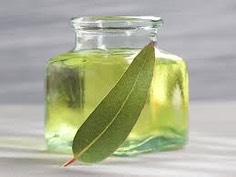
Therapeutic actions:
The therapeutic properties of eucalyptus oil are analgesic, anti-bacterial, anti-inflammatory, anti-neuralgic, anti-rheumatic, antiseptic, antispasmodic, antiviral, astringent, balsamic, cicatrisant, decongestant, deodorant, depurative, diuretic, expectorant, febrifuge, hypoglycaemic, rubefacient, stimulant,vermifuge and vulnerary.
Systems/conditions that benefit from its use:
Eucalyptus oil has a cooling and deodorizing effect on the body. For the respiratory tract, it helps with coughs, asthma, throat infections, sinusitis and catarrhal conditions. Eucalyptus oil is a powerful respiratory aid and has a strong influence on breathing. It has a reputation as a good expectorant (promotes removal of mucous from respiratory system) and cough suppressant. Specifically, Eucalyptus aromatherapy essential oil is helpful for easing inflammation of the nasal mucous membranes, as well as nasal congestion.
For treating bronchial problems use Eucalyptus oil as an inhalant, or diffuse in the air. You can also use in a dilution of light coconut oil or jojoba and apply liberally to the chest and upper back areas. It stimulates oxygen uptake in our cell tissues and increases circulation. Increased oxygenation in the lungs promotes the cleansing and repair function of our red blood cells.
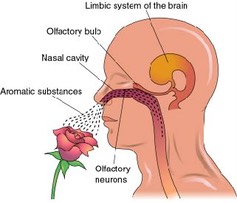
Eucalyptus oil is an excellent blood cleanser and helpful for regenerating lung tissue and function. A fever reducer Eucalyptus oil is helpful for relieving fevers that arise from infectious diseases. Eucalyptus is useful in cooling compresses! Apply to the forehead, back of neck, over the kidneys and pelvic region. Its action is similar to Peppermint's and only a small amount is needed otherwise it may produce a chilling effect.
Eucalyptus oil brings to mind the family medicine cabinet. Certainly many traditional, as well as modern day medicines contain Eucalyptus. It can furthermore boost the immune system. Powerful anti-bacterial and anti-viral properties may be effective in the treatment of a broad spectrum of infections. Eucalyptus pure essential oil has been used to treat tuberculosis, malaria and is helpful in cases of chicken pox, colds, flu and measles. In skin care it can be used for burns, blisters, cuts, wounds, skin infections, cold sores, skin ulcers, shingles and insect bites.
Eucalyptus oil is also very helpful when used for headaches, fevers, ailments of the respiratory tract, muscular aches and pains and in skin care. It has a soothing and calming effect on the whole body and helps with the immune system.
The oil is also effective against bacteria - especially staphylococci, and has a refreshing and stimulating action on the mind, helping to improve concentration.
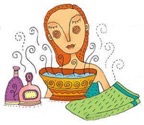
Most beneficial/suitable methods of use:
Burners and vaporizers
In vapour therapy, eucalyptus oil may be used for: frequent sneezing, hay fever, flu, respiratory problems, as insect repellent, headaches and for helping to improve concentration.
Blended massage oil or in the bath
Eucalyptus oil can be used in blended massage oil, or diluted in the bath, to assist with arthritis, asthma, bronchitis, mucous congestion, colds, headaches, rheumatism, sinusitis, catarrh, fatigue and muscular aches and pains.
In a cream or lotion
Apart from giving pain relief to muscular spasms and rheumatism, eucalyptus oil can also help speed up the healing of slow healing wounds and ulcers, calm skin eruptions and clear congested skin.
Used neat or dab on with a bud
Eucalyptus oil can be used neat on the skin for insect bites or wounds, but care should be taken when doing so.
Gargle
When diluted eucalyptus oil is added to a gargle, it can be used for soothing a sore throat.
Safety data
Eucalyptus oil should be used with care. People with high blood pressure, gallbladder disease and epilepsy should avoid it. Excessive use of this oil may cause headaches, nausea, vomiting and diarrhoea. In case of digestive upset we should reduce the dose.
Evi
Heal Within 5
February
Baby massage
The most precious jewels you will ever wear around your neck are the arms of your children. When you touch their body, you touch the whole person, the intellect, the spirit, and the emotions. Connect with your children heart-to-heart. Touch them with your hands, your eyes and your heart. Let them bond with the living, the breathing world.
Infant or baby massage has been around for thousands of years. Is an ancient art used in many diverse cultures to help with a variety of physical and emotional needs, or to promote relaxation.
Touch is the “mother of the senses” and is the first sense to develop in the womb and remains the most developed sense at birth. Before babies are able to speak, or even respond to sounds and sights, they communicate with the world around them through touch. It is therefore not surprising that massage can stimulate the nerve centres in the brain, lowering stress levels and thereby resulting in improved immune systems. Positive, nurturing touch is a wonderful way to help your baby feel safe, secure and loved and promoting good health, deepens bonding and strengthens communication and family relationships.
Each massage may stimulate:
• Circulatory and digestive systems
• Hormonal and immune systems
• Coordination and balance
• Learning and concentration
• Muscular development and growth
• Mind and body awareness
• Helps to improve sensory and body awareness
• Enhances neurological development
Parents may find that infant massage helps relieve:
• Gas and colic
• Constipation and elimination
• Growing pains and muscular tension
• Teething discomfort
• Cramps
The massage promotes relaxation which may be shown through:
• Improved sleep patterns
• Increased flexibility and muscle tone
• Regulation of behavioural states
• Being calm and being able to calm themselves
• Reduction in stress hormones
• Promotes relaxation which reduces crying
Baby massage can also be relaxing for mum as well as baby. Yes, babies get stressed too being in new environments and they also pick up on your stress. Taking time out together for a massage teaches baby how to relax, and you will relax too as baby massage can play a vital role in this process particularly if you've struggled due to postnatal depression, an early baby or medical problems.
Baby massage is an encompassing experience for the whole family unit and it's a great thing for dad to learn too, especially if mum is breast feeding and he feels left out in those early days. It teaches all involved to love, cherish and respect each other and reinforces the notion that mum, baby and extended family have started off on a momentous journey together, where all of us play our own unique role in supporting and loving one another.
I provide massage sessions form my clinic which includes a detailed handout and a pot of organic oil or aromatherapy blend massage oil (as I am a qualified Aroma therapist) which can be customised regarding your babies requirements. Sessions also available in the comfort of your house which can be taught as individual or group sessions.
Infant massage can promote the kind of parenting that the attentive mother was able to provide. Its benefits go far beyond the immediate physiological gains. As you massage your baby regularly, you will discover that you develop a bond with your child that will last a lifetime.”
Evi
Heal Within 5
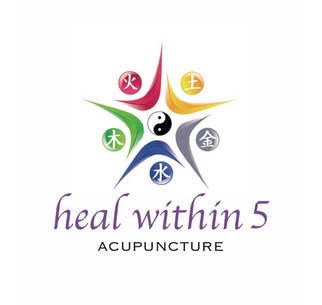
For more information or advice, please contact:
Evi Achillea
Founder
Heal Within 5
Tel: 07528337068
Email: evi73@hotmail.co.uk
Evi Achillea Accupuncture
www.healwithin5.co.uk
